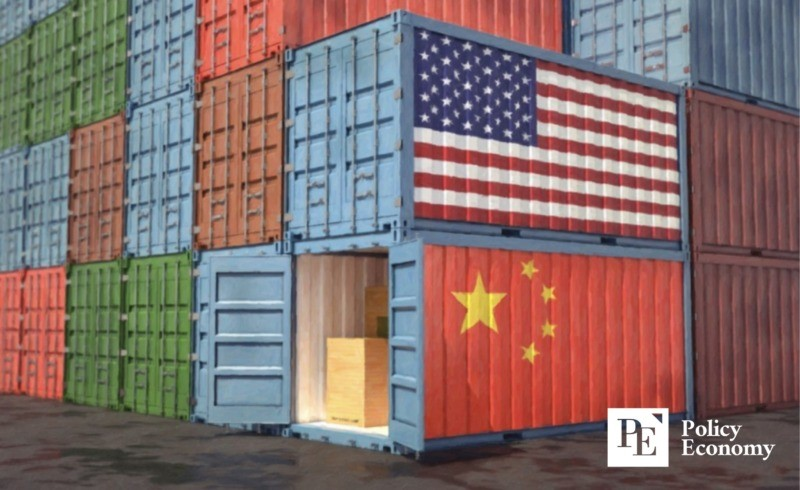U.S. Walmart Instructs Chinese Suppliers to Resume Shipments — Is a U.S.-China Trade Deal Imminent?
Input
Modified
Trump Hints at Possible Easing of 145% Tariffs on Chinese Goods Walmart Resumes Imports from China Following White House Meeting China Warns Walmart to Stop Pressuring Suppliers for Price Cuts

Walmart, the largest retail chain in the United States, has requested its Chinese suppliers to resume shipments after previously canceling or postponing orders due to Washington’s tariff-heavy trade policy. The move comes after Walmart held a meeting with U.S. President Donald Trump, prompting speculation in the industry that U.S.-China trade negotiations may soon resume. Meanwhile, the Chinese government has issued a public warning to Walmart, urging the company to refrain from pressuring domestic suppliers to lower prices.
Trump Signals Tariff Rollback on China Amid Walmart Shipment Resumption
April 29 (local time) – As U.S. President Donald Trump hints at reducing tariffs on Chinese goods, signs are emerging of a potential thaw in U.S.-China trade relations. According to the South China Morning Post, several Chinese exporters in Jiangsu and Zhejiang provinces report receiving instructions from Walmart to resume shipments to the United States—just weeks after a fresh round of tit-for-tat tariffs had been imposed.
A representative of a Ningbo-based office and school supply exporter noted that their U.S. client, Walmart, had communicated plans to restart shipping and that the newly applied tariffs would likely be passed onto the U.S. customer.
Currently, Trump has raised effective tariffs on Chinese imports to approximately 156%, with some items facing duties as high as 245%. In retaliation, China slapped additional tariffs of up to 125% on all U.S. imports. Yet, in recent comments, Trump signaled a potential softening of this stance. During a press conference, he stated that the 145% tariff rate "will substantially come down," and claimed in a TIME interview to have spoken with Chinese President Xi Jinping.
Trump's statement followed a White House meeting on April 21 with executives from major U.S. retailers, including Walmart, Target, Lowe’s, and Home Depot. A Target spokesperson described the meeting as “productive” and centered on “the future direction of trade.” Home Depot echoed a similar sentiment, while the White House did not immediately provide a public comment.
Walmart Diversifies Supply Chains in India and Mexico
Walmart, in particular, has been proactive in diversifying its supply chain away from China since the Biden administration. In 2023, India accounted for a quarter of Walmart’s total U.S. imports—up from just 2% in 2018. A company spokesperson previously noted, “Whether it's hurricanes, earthquakes, or raw material shortages, we can't depend on a single supplier or region.”
Walmart began sourcing from India in 2002 and now employs over 100,000 people there, including contract workers. After acquiring a 77% stake in Indian e-commerce firm Flipkart in 2018, Walmart set a goal of importing $10 billion worth of goods annually from India by 2027, up from the current $3 billion.
In Mexico, Walmart is also scaling up. When it needed 50,000 uniforms in 2022, it opted for a local supplier over its traditional Chinese vendors. It has also invested in two AI-powered logistics hubs in Bajío and Tlaxcala, and now sources 83% of its Mexican retail goods domestically through a network of 33,000 SMEs.
Beijing Pressures Walmart Over Supplier Pricing
In a development that may signal rising tensions, the Chinese government recently summoned Walmart executives for talks. According to a report by China’s state broadcaster CCTV, officials raised concerns that Walmart was demanding significant price cuts from Chinese suppliers to offset U.S. tariffs.
CCTV warned that unilateral price reductions could “disrupt the supply chain and harm the interests of both Chinese and American businesses and consumers,” adding that “further actions may go beyond discussion” if Walmart insists on such terms.
The move is widely seen as Beijing’s countermeasure to the U.S. tariff hikes—specifically targeting America’s largest retailer to assert leverage in trade negotiations. China’s semi-official Chamber of Commerce for the Import and Export of Textiles also issued a statement confirming that “multiple member firms had reported U.S. retailers pressuring them to lower prices,” and emphasized that “both Chinese and U.S. businesses are victims in this dispute.”





















